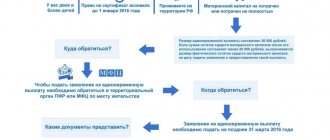Every day in the world people are born and die. No one can plan the outcome of life in advance, so property owners often wonder what documents are needed to register a will for an apartment with a notary. Rational adults prefer to solve problems like adults, without leaving behind unsolved and insoluble problems.
The legislative framework
The legal aspect of a will is the natural expression of will in relation to heirs and property. The significance of the document is that when distributing rights, the opinion of the deceased is taken as a basis. If the paper was not drawn up during life, then the inheritance issue is resolved within the limits of the law, which means that the advantage is on the side of the direct heirs: spouses, children, parents.
A written, notarized wish of the deceased is a way to express personal will in relation to acquired real estate. In this case, the apartment can be inherited by a specific person who does not have a direct relationship or family ties with the owner.
What documents are needed for a notary
Question for a notary: What documents does a notary need to draw up a will?
Answer: To register a will, it is enough to present your passport.
Only an adult citizen with full legal capacity can draw up a testamentary disposition. Therefore, when drawing up a will, you need to present to the notary:
- identification document (passport of a Russian or foreign citizen, residence permit);
- marriage registration certificate, if the testator is under 18 years of age, as confirmation of the acquisition of legal capacity;
- a certificate from the guardianship authorities or a court decision recognizing early emancipation.
The legal capacity of a citizen is established by a notary during a conversation. If the testator wants to be sure that the will will not be challenged on this basis, he has the right to voluntarily submit a certificate from a psychoneurological dispensary. A notary will not accept a document if the person applying is under the influence of alcohol or drugs, answers questions inadequately, or is unable to speak due to loss of speech.
When making a will, it is not necessary to submit documents about the inherited property. Information about it, as well as its distribution among legal successors, other orders (testamentary refusal, appointment of an executor) is established by the notary according to the testator.
A citizen can indicate his property in the most general form. For example, “I bequeath all the property that will belong to me at the time of my death, whatever it is and wherever it is located, to my wife A.V.P.” On the other hand, when registering an inheritance, you can indicate specific shares, things, objects.
Example. The testator left an apartment of 45 m2 to the children in the following ratio: daughter - 35 m2, son - 15 m2. On the day the will came into force, its value was 3.5 million rubles. Consequently, 1 m2 costs 77.8 thousand rubles. The daughter will receive a certificate for a share of 78/100, the son - for 22/100 of the inheritance.
If a specific bequeathed property is indicated, it is advisable to accurately reproduce its individual characteristics so that a situation of misreading does not arise later. Over time, the address, cadastral number of the apartment, land plot, make and year of manufacture of the car do not change. If the will is executed at a notary's office, it is better to take the necessary property documents with you.
A will gives rise to legal consequences not at the time of its execution, but after the opening of the inheritance. Therefore, it is allowed to mention even property that will be acquired in the future and does not exist at the time of execution of the document.
Stages of registering a will for an apartment
Deciding to leave behind the main document of title is a rational and measured step. In some situations, even insidious. Each person has the right to independently dispose of acquired property: to reward or punish someone.
To relieve tension and eliminate unnecessary questions, it is advisable to draw up a will in accordance with the existing protocol of actions.
- Decide on candidates for inheritance.
- Decide on equity participation in the case.
- Distribute property rights and some obligations.
The decision made regarding to whom and in what proportions the will will be addressed is endorsed by a notary. Depending on the client’s wishes, the document is of an open type, if a legal entity was involved in its preparation, or a closed type. In the second option, the text is known only to the owner, so two witnesses are involved to confirm the conscious expression of the citizen’s will.
Basic documents for inheritance under a will
To register an inheritance, you must provide a package of papers to the notary. He will conduct an assessment, analyze the papers and, if they comply with their standards, open an inheritance case.
Certain documents are required to register an inheritance:
- death certificate of the testator;
- passport of a citizen of the Russian Federation in the name of the person applying for registration of inheritance;
- will. If we are talking about this method of inheritance, a will is necessary. One copy of it, as a general rule, is kept by the compiler, and the second must be kept by the notary;
- certificate of persons registered in the apartment or house where the deceased lived;
- refusals of other heirs, if any. Any heir, regardless of others, has the right to refuse to inherit. In this case, a written refusal certified by a notary is required.
To register an inheritance, the listed papers must be collected and provided to the notary in full.
Documents required for registration of a will
Another requirement that the notary makes of the testator is the presence of a complete package of grounds for the transfer of property after the death of the owner. To draw up paperwork at the notary's office you will need to bring:
- Identification. In the Russian Federation, such a document is a passport. It helps to establish and verify data.
- Title papers for living space are provided not for the purpose of confirming property rights, but to identify the object of inheritance (the actual location address).
- Medical examination. The testator must obtain a certificate of health from a psychoneurologist. This requirement also applies in specific cases and depends on the age of the client. The older he is, the stricter the rules.
- Personal information about heirs, according to passport data or birth certificate for minors.
Testator's rights
A will is a unilateral act. It fully reflects the will of the owner. It can be written not only for a person, but also for any organization, charitable foundation, etc.
CALL A LAWYER
HE WILL SOLVE YOUR QUESTIONS FOR FREE Moscow, region 8 (499) 577-00-25 ext. 130 St. Petersburg, region 8 (812) 425-66-30 ext. 130 Federal number 8 (800) 350-84-13 ext. 130
Required conditions:
- voluntariness;
- sanity.
In accordance with the conditions for drawing up a will, they are divided into:
- Open. This means that when drafting, the notary gets acquainted with the text of the document. It is also possible that third parties will be present during the writing of the document.
- Closed. The testator himself draws up the document, signs it and submits it to the notary's office in a sealed envelope. A prerequisite is the presence of at least two witnesses.
A closed will is convenient if the owner does not want the heirs to know about his will.
The testator has the right:
- Leave the property to anyone, even a stranger.
- Divide all property in any shares.
- Include in the will the conditions for the heir to receive the property (sample will here)
Probate costs
Such manipulation does not incur any special financial costs. The testator only needs to pay for the notary's services. The tariff depends on:
- client status;
- assessment by a specific specialist of his own legal and technical services.
The average price tag set for document execution includes:
- payment for manipulations to draw up the text of the will – 1000 rubles;
- The cost of a letterhead notarization is 100 rubles.
Additional costs may come from consultations, clarifications, and legal support. All this is reflected in the size of the final amount.
What does a testator need to know?
The document, which comes into force after the death of the addressee, is drawn up personally and according to the expression of will. The procedure excludes the presence of third parties, but is reversible.
You can rewrite the text at least every month. Only the document that was certified last has legal force. Therefore, the main condition is to indicate the date and place of its compilation.
The testator must understand that minors and incapacitated children or disabled parents, spouses, as well as dependents who have been in the care of the addressee for more than a year are guaranteed to enter into inheritance rights, even if there is a will for the share of the apartment. The fact of the legal basis is established at the time of the death of the owner of the property. They cannot be voluntarily deprived of their share, because the state is on their side.
Writing a will
There is a document drafting protocol used when writing a will in the presence of a notary:
- The text must be drawn up in your own hand if it is a closed type.
- The testator's condition must correspond to medical indications.
- The testator is not influenced by third parties.
- If it is physically impossible to formalize a citizen’s will in person, the text is written under dictation by a notary in the presence of two witnesses.
- The signature of the legal entity and the citizens present is evidence of the testamentary document and confirms its authenticity and truthfulness.
How to write a will
Since the will is written by a notary, it is not necessary to draw up the text in advance. In notary offices, the client will definitely be explained how to correctly draw up a will and will be offered a sample that meets all the norms and requirements of the law.
The owner of the apartment can draw up a will both in open form and certify his signature on a sealed envelope with the text of the will - such a declaration of will will be called a closed will and its contents will become known only after his death after an official announcement in the presence of the heirs.
When thinking about how to draw up a will for an apartment, a sample of the main contents of which is provided to the owner, in some cases it is necessary to make special calculations for the inherited property so as not to infringe on the rights of mandatory heirs - dependents. The rights of these persons are protected by law and, if the owner does not want to leave them anything, their share in the inheritance will still be obligatory.
In such cases, it is necessary to think over and write a will before visiting a notary yourself, subject to mandatory compliance with several basic requirements for the content of the will.
Required items
A will, drawn up in open or closed form, must, according to the Civil Code of the Russian Federation, have the following mandatory clauses:
- Full last name, first name and patronymic of the will-maker
- Date of Birth
- Permanent registration address
- Passport data
- Apartment information
- Heir details
- Date of will
The absence of one or more of the items listed may be grounds for going to court to challenge the will.
Documents for a visit to a notary
The main documents for certification of a will by a notary are:
- passport
- title documents for the apartment
If we are talking about an elderly person, it is worth asking a notary in advance what documents are needed for a will for an apartment in your particular case.
Age may be a reason for a notary to reasonably request additional papers indicating the legal capacity of the will-maker:
- certificate from a psychoneurologist confirming the absence of mental illness
- doctor's certificate of competency
Such documents may be required by a notary if the testator has crossed the age threshold of 55 years or has visible signs of inadequacy.
Notary signature procedure
If the text of the will is drawn up correctly, the procedure for drawing up the document will not take much time. The entire process of identifying the will-maker and certifying the will consists of several points.
- Based on the documents brought by the owner, the notary establishes his identity and certifies his legal capacity. The will is then read aloud or given to the will-maker for reading.
- If there are no comments, the document is signed by the owner in the presence of a notary.
- At the final stage, the notary certifies the will signed by the owner of the apartment with his signature, the personal seal of the notary and makes a record of the actions taken in a special register.
- Then the cost of registration is paid to the notary's cash desk or directly to his assistant.
From this moment on, the will will be considered legal, but it can only come into effect upon the death of the will-maker.
Video: How to draw up a will and is it worth it?
Who can certify a will?
Drawing up the text of the document and its certification is within the competence of the notary. This can be done at the location of the office or pay for the services of an on-site procedure. Due to life circumstances, a person’s will can be certified by other persons:
- head and deputy of a medical institution;
- director of a nursing home;
- head of the department responsible for prisoners;
- captain of the ship;
- commander-in-chief of a military unit.









